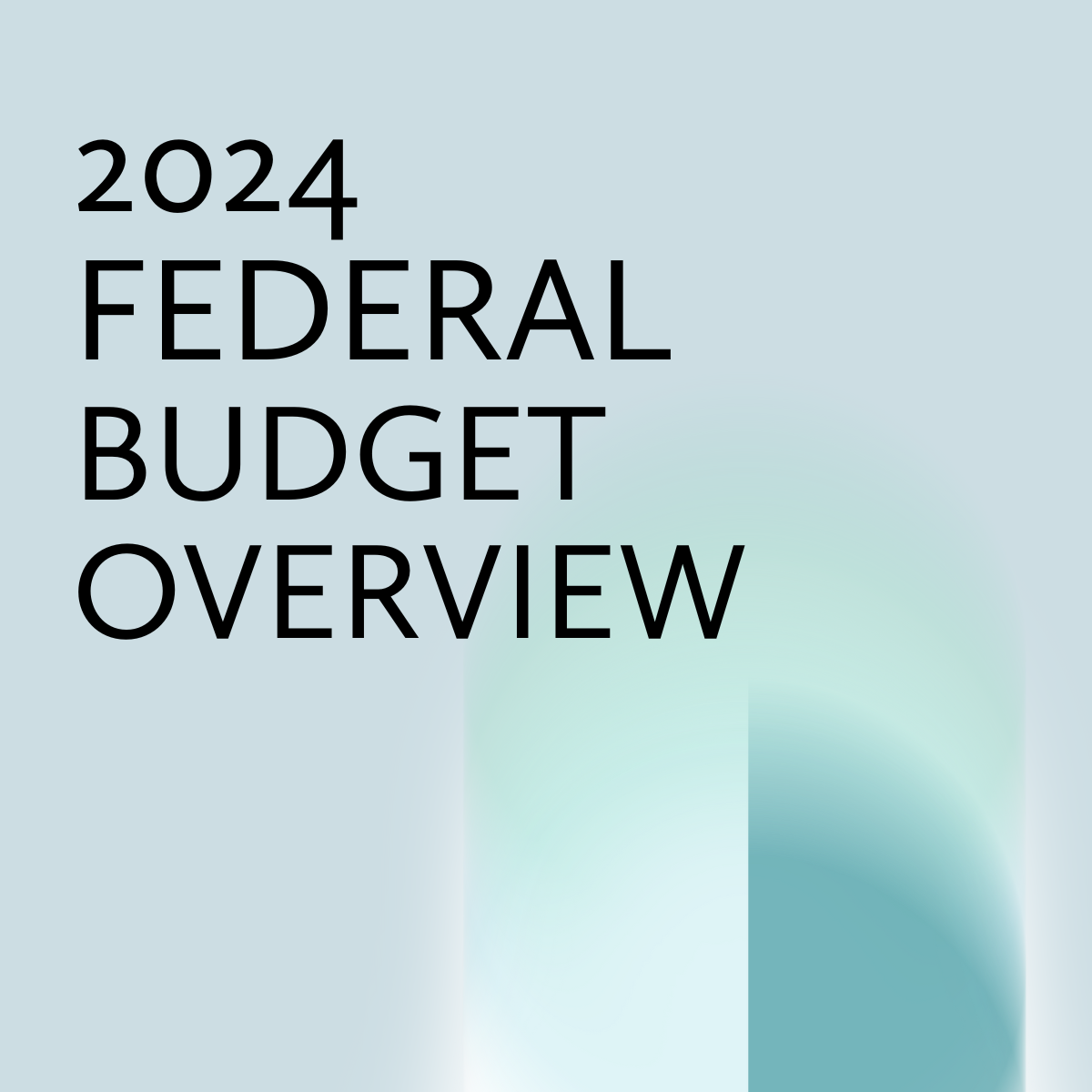
The 2024 federal budget has delivered another year in the black with a surplus of $9.3bn. But as the Government continues selling the line that helping Australians with the cost of living is their number one priority, households are focusing on tax cuts, energy bill relief, and rent assistance. While policy that hopes to revitalise and strengthen the economy by making Australia a ‘renewable energy superpower’ and boosting domestic manufacturing through the ‘Future Made in Australia’ initiative may take a backseat in the public eye.
The backdrop to this year’s budget is a blend of economic challenges and opportunities, below is our quick snippet of the 2024 federal budget:
- A $9.3 billion surplus for FY24/25 but a $122 billion deficit spread across the next 4 years until 2027.
- Inflation is predicted to go and stay under 3% by Christmas 2024, in line with RBA’s expectations.
- The Government is spending money to help households save – a $300 electricity rebate to all households quarterly, a 10% increase in rent assistance, and an additional 29 urgent care clinics will be built, completely covered by Medicare. And lastly, there is a five-year freeze for pensioners on the maximum Pharmaceutical Benefits Scheme patient copayment.
- Stage 3 tax cuts to take place 1 July which affect 14 million Australians. Each person receives an average of $1900 in tax cuts.
Piers Bolger, Chief Investment Officer of Infinity Capital Solutions highlights a mix of shorter-term challenges and medium-term opportunities for Australia. “As the world recovers from recent global events, Australia confronts its own economic hurdles, such as ongoing inflationary pressures and a deceleration in economic activity. Despite a relatively stable labour market, there are expectations of an increased jobless rate and a protracted period of high interest rates, which are likely to further suppress consumer behaviour and business investments. Moreover, while the financial market showed robust returns towards the end of 2023, this momentum is anticipated to moderate through the second half of 2024. However, opportunities persist across various asset classes, supported by the potential decrease in cash rates and an uptick in global economic activity.”
The 2024/2025 budget introduced pivotal changes affecting taxation, benefits, and subsidies, with significant implications for individuals and businesses. One key area to watch is the changes in taxation superannuation and retirement policies. Executive Financial Advisor Lakshan Weerasinghe notes that “legislation changes related to superannuation and income tax often take centre stage with each federal budget. However, they can also be difficult to interpret or navigate.” Seeking advice from a financial adviser can be paramount in determining how to get the best financial outcome for you or your loved ones.
Upcoming and proposed superannuation and income tax changes:
- From 1 July 2024, superannuation contribution caps are increasing – the concessional contribution cap will increase from $27,500 to $30,000 per financial year and the non-concessional cap will increase from $110,000 to $120,000 per financial year, or up to $360,000 in one financial on a ‘bring-forward’ basis.
- From 1 July 2024, compulsory employer superannuation contributions (superannuation guarantee) are increasing from 11% to 11.5%. This will then increase to 12% from 1 July 2025.
- From 1 July 2024, every taxpayer earning over $25,000 will receive a tax cut as stage 3 of the government tax cuts comes into effect. The extent of this tax cut will depend on your current gross income.
- From 1 July 2025, superannuation will be paid on government funded paid parental leave.
- From 1 July 2025, an additional earnings tax, within superannuation, will be applied to superannuation balances over $3m at the end of the financial year. The application of this tax is somewhat complex so advice should be sought as to what implications it may have to you, if relevant.
- From 1 July 2026, employers will be required to pay superannuation on the same day their employees are paid, rather than monthly or quarterly.
- The government is changing the way in which HECS/HELP debts are indexed every year. These student debts will now be indexed to whichever is lower out of the wage price index and inflation. This initiative will be back dated to 1 June 2023, meaning those who had their student debt indexed by 7.1% last year will see their debt reduced as a 3.2% indexation will be retrospectively applied.
These changes could provide opportunities to enhance retirement savings and improve financial positions, hence consulting with a financial adviser to explore how these changes can be leveraged is crucial for individuals and businesses.
Grasping the nuances of the federal budget is critical for effective personal and business financial management. The implications of the budget permeate deeply into the Australian economic fabric, affecting various aspects of business operations and individual financial health. Regular meetings with your financial adviser are recommended to stay abreast of these changes.
You can download a summary of changes that may impact individuals below. For tailored advice, consider scheduling a discovery call through our website which is designed to assist you in navigating the complexities of these financial changes with ease.

